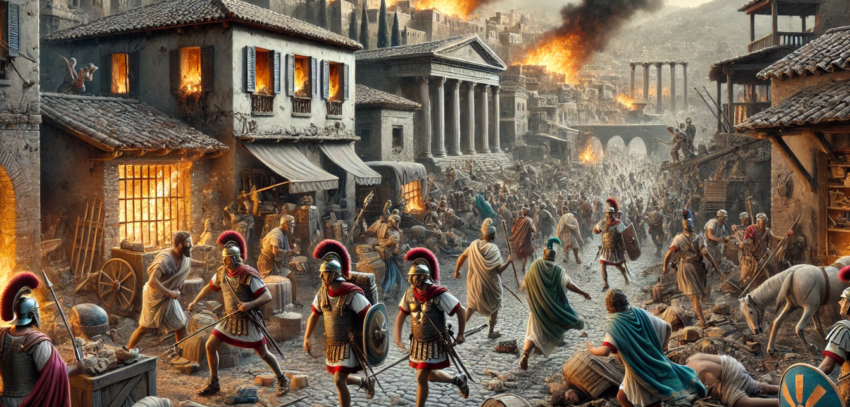Causes and Early Skirmishes
The Third Punic War, fought between Rome and Carthage from 149 to 146 BCE, marked the final conflict in the long-standing rivalry between the two powers. The causes of this war can be traced back to the unresolved tensions and hostilities that persisted following the Second Punic War. Despite Carthage’s efforts to comply with Roman demands, including paying large indemnities and ceding territories, the Romans remained wary and suspicious of Carthaginian intentions.
One of the main catalysts for the Third Punic War was the resurgence of Carthaginian economic and military strength. By the mid-2nd century BCE, Carthage had begun to recover from its previous defeats and was once again becoming a prosperous and influential city-state. This resurgence alarmed Rome, which viewed Carthage’s recovery as a potential threat to its dominance in the Mediterranean region. The final straw came when Carthage, provoked by continuous harassment from the neighboring Numidian king Masinissa, decided to defend itself militarily. This act of defiance against Rome’s ally gave the Romans the pretext they needed to declare war.
Early skirmishes in the Third Punic War were characterized by a series of aggressive Roman maneuvers aimed at weakening Carthage’s defenses and morale. The Roman Senate dispatched an army to Africa under the command of consuls Manius Manilius and Lucius Marcius Censorinus. The Carthaginians, though outmatched in terms of military strength, were determined to defend their city. They fortified their walls, gathered supplies, and rallied their citizens to resist the Roman invasion.
Initial encounters between the two forces were inconclusive, with the Romans facing strong resistance from the Carthaginian defenders. The Carthaginians employed various defensive tactics, including the use of their formidable navy to disrupt Roman supply lines and launch counterattacks. Despite these efforts, the Romans gradually gained the upper hand, leveraging their superior numbers and strategic advantage.
The early stages of the war set the tone for a brutal and protracted conflict. Both sides suffered significant casualties, and the siege of Carthage became increasingly desperate as the Romans tightened their grip. The determination of the Carthaginians to defend their homeland against overwhelming odds remains a testament to their resilience and the high stakes of this historic clash.
 |
 |


